BMW X3 vs Mitsubishi ASX – Differences & prices compared
Compare performance, boot space, consumption and price in one view.
Find out now: which car is the better choice for you – BMW X3 or Mitsubishi ASX?
The BMW X3 (SUV) comes with a Petrol MHEV, Diesel MHEV or Plugin Hybrid engine and Automatic transmission. In comparison, the Mitsubishi ASX (SUV) features a Petrol, Petrol MHEV or Full Hybrid engine with Manuel or Automatic transmission.
When it comes to boot capacity, the BMW X3 offers 570 L, while the Mitsubishi ASX provides 484 L – depending on how much space you need. If you’re looking for more power, decide whether the 398 HP of the BMW X3 or the 158 HP of the Mitsubishi ASX suits your needs better.
In terms of consumption, the values are 0.90 L per 100 km for the BMW X3, and 4.60 L for the Mitsubishi ASX.
Price-wise, the BMW X3 starts at 50900 £, while the Mitsubishi ASX is available from 20600 £. Compare all the details and find out which model fits your lifestyle best!
BMW X3
The BMW X3 stands out in the competitive SUV market with its refined blend of performance and luxury. Its interior boasts high-quality materials and a design focused on driver comfort and convenience. With a robust engine lineup, the vehicle offers a balanced driving experience that caters to both urban settings and off-road adventures.
details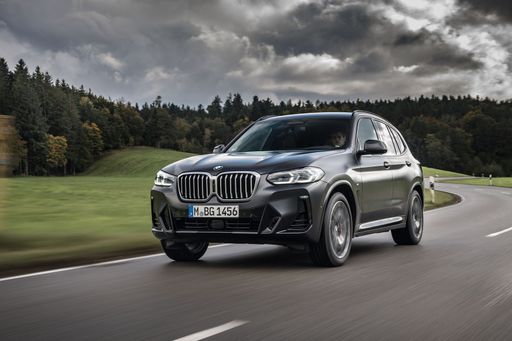 @ press.bmwgroup.com
@ press.bmwgroup.com
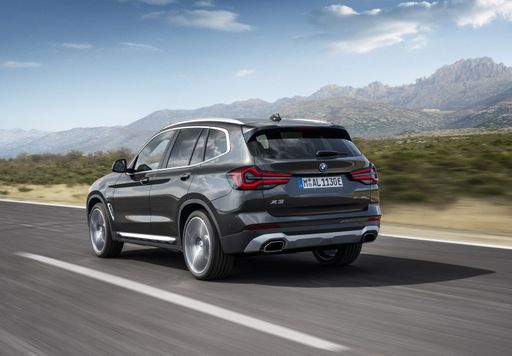 @ press.bmwgroup.com
@ press.bmwgroup.com
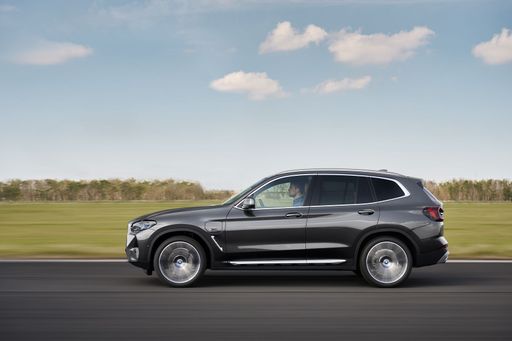 @ press.bmwgroup.com
@ press.bmwgroup.com
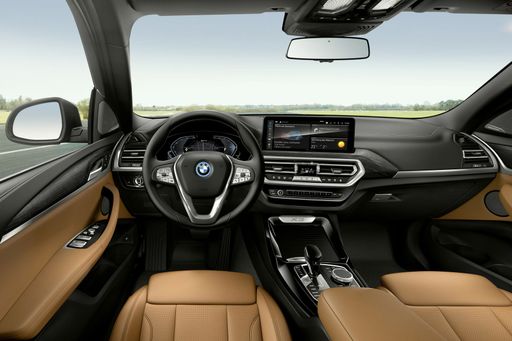 @ press.bmwgroup.com
@ press.bmwgroup.com
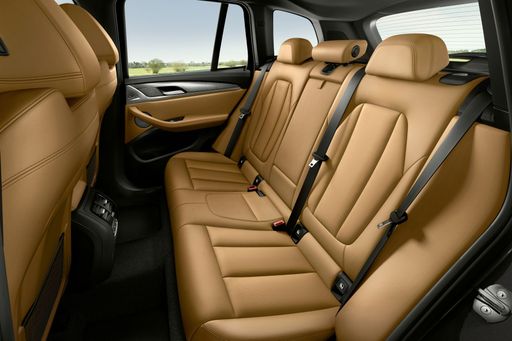 @ press.bmwgroup.com
@ press.bmwgroup.com
Mitsubishi ASX
The Mitsubishi ASX presents itself as a compact crossover that combines practicality with style. Its sleek design and versatile interior make it an appealing choice for both urban and rural settings. With a focus on providing a comfortable driving experience, the ASX also offers a range of modern features that enhance connectivity and safety.
details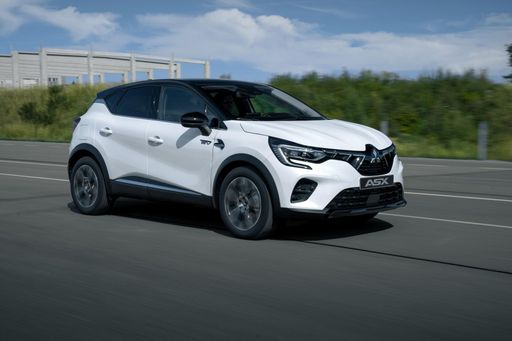 @ Mitsubishi
@ Mitsubishi
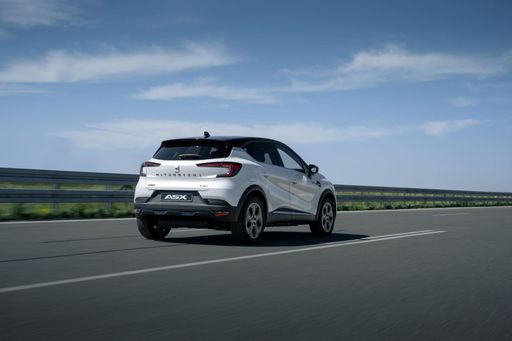 @ Mitsubishi
@ Mitsubishi
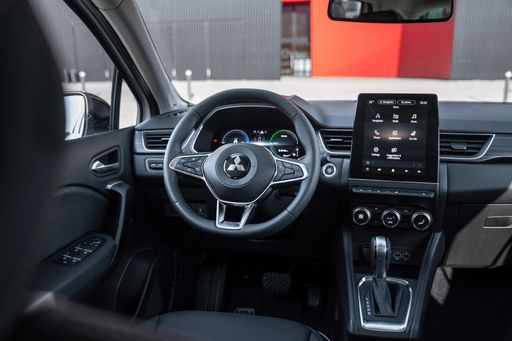 @ Mitsubishi
@ Mitsubishi
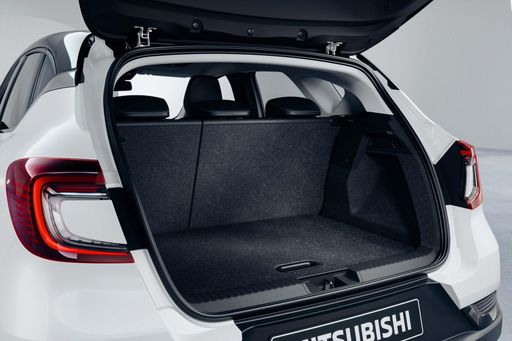 @ Mitsubishi
@ Mitsubishi

|

|
|
|
|
Costs and Consumption |
|
|---|---|
|
Price
50900 - 72400 £
|
Price
20600 - 32000 £
|
|
Consumption L/100km
0.9 - 7.7 L
|
Consumption L/100km
4.6 - 6 L
|
|
Consumption kWh/100km
-
|
Consumption kWh/100km
-
|
|
Electric Range
90 km
|
Electric Range
-
|
|
Battery Capacity
19.70 kWh
|
Battery Capacity
0.60 kWh
|
|
co2
21 - 175 g/km
|
co2
105 - 135 g/km
|
|
Fuel tank capacity
50 - 65 L
|
Fuel tank capacity
48 L
|
Dimensions and Body |
|
|---|---|
|
Body Type
SUV
|
Body Type
SUV
|
|
Seats
5
|
Seats
5
|
|
Doors
5
|
Doors
5
|
|
Curb weight
1930 - 2140 kg
|
Curb weight
1296 - 1501 kg
|
|
Trunk capacity
460 - 570 L
|
Trunk capacity
348 - 484 L
|
|
Length
4755 mm
|
Length
4239 mm
|
|
Width
1920 mm
|
Width
1797 mm
|
|
Height
1660 mm
|
Height
1575 mm
|
|
Payload
570 kg
|
Payload
399 - 449 kg
|
Engine and Performance |
|
|---|---|
|
Engine Type
Petrol MHEV, Diesel MHEV, Plugin Hybrid
|
Engine Type
Petrol, Petrol MHEV, Full Hybrid
|
|
Transmission
Automatic
|
Transmission
Manuel, Automatic
|
|
Transmission Detail
Automatikgetriebe
|
Transmission Detail
Schaltgetriebe, Automat. Schaltgetriebe (Doppelkupplung), Automatikgetriebe
|
|
Drive Type
All-Wheel Drive
|
Drive Type
Front-Wheel Drive
|
|
Power HP
197 - 398 HP
|
Power HP
91 - 158 HP
|
|
Acceleration 0-100km/h
4.6 - 7.8 s
|
Acceleration 0-100km/h
8.5 - 14 s
|
|
Max Speed
215 - 250 km/h
|
Max Speed
168 - 180 km/h
|
|
Torque
330 - 670 Nm
|
Torque
160 - 270 Nm
|
|
Number of Cylinders
4 - 6
|
Number of Cylinders
3 - 4
|
|
Power kW
145 - 293 kW
|
Power kW
67 - 116 kW
|
|
Engine capacity
1995 - 2998 cm3
|
Engine capacity
999 - 1598 cm3
|
General |
|
|---|---|
|
Model Year
2024 - 2025
|
Model Year
2024
|
|
CO2 Efficiency Class
F, E, B
|
CO2 Efficiency Class
D, C
|
|
Brand
BMW
|
Brand
Mitsubishi
|
BMW X3
Introducing the BMW X3: A Blend of Power and Innovation
The BMW X3 is a testament to the brand’s commitment to merging luxury with cutting-edge technology. This SUV not only offers impressive on-road performance but also showcases innovative features that cater to both petrolheads and eco-conscious drivers.
Powerful Performance Across the Range
The BMW X3 comes with various powertrain options to suit diverse driving preferences, ranging from efficient plug-in hybrids to powerful petrol and diesel mild-hybrids. With performance outputs ranging from 184 PS to an impressive 510 PS, the X3 proves its versatility on the road. Paired with BMW's renowned automatic transmission, each model offers a smooth and responsive driving experience complemented by the brand's xDrive all-wheel-drive system.
Leading-Edge Hybrid Technology
Among the X3's portfolio, the plug-in hybrid variants stand out with their optimal balance between efficiency and performance. These models boast electric-only ranges up to 90 km, ideal for urban driving with minimal emissions. Meanwhile, the mild-hybrid systems enhance efficiency by recuperating energy during deceleration and supporting the combustion engine, optimizing fuel consumption ranging from 0.9 L/100km to 10.8 L/100km depending on the model.
Contemporary Design with Practical Features
From a design perspective, the BMW X3 maintains its iconic SUV silhouette, characterized by robust proportions and sleek, aerodynamic lines. With dimensions of up to 4755 mm in length and a luggage capacity of up to 570 litres, it caters to both style enthusiasts and practical users. Additionally, the interior showcases BMW’s commitment to sophistication, featuring high-quality materials, state-of-the-art infotainment systems, and comprehensive driver-assistance technologies.
Efficiency Meets Performance
The X3's impressive performance figures are complemented by its responsible approach to CO2 emissions, aligning with EU efficiency standards. Enhanced by its comprehensive suite of driver aids and intelligent safety features, the X3 ensures both the thrill of driving and peace of mind.
Conclusion: The Ultimate Driving Companion
In essence, the BMW X3 represents the perfect intersection of dynamic performance, fuel efficiency, and modern-day technology. With options catering to diverse needs and preferences, it remains a leading choice for drivers seeking versatility, innovation, and luxury.
Mitsubishi ASX
The Mitsubishi ASX: A Modern SUV with Advanced Features
The Mitsubishi ASX continues to be a popular choice for SUV enthusiasts, combining sleek design, impressive efficiency, and innovative technology. The 2024 model year introduces an array of improvements, making it a worthy contender in its category. In this article, we will delve into the technical details and innovative aspects of the Mitsubishi ASX, presenting why it stands out in the SUV segment.
Sophisticated Powertrains and Efficiency
Under the bonnet, the Mitsubishi ASX offers a variety of powertrain options, catering to different driving preferences. Customers can choose from petrol engines, mild-hybrid systems, and full-hybrid configurations, balancing power and efficiency effectively.
The performance spectrum ranges from 91 PS to 158 PS, demonstrating the vehicle's versatility. With a fuel consumption of between 4.7 and 6 L/100km, the ASX effectively manages fuel efficiency without compromising on performance. The car's CO2 emissions range from 107 to 135 g/km, placing it within CO2 efficiency classes C and D.
Advanced Transmission Options
The ASX offers a mixture of manual and automatic transmissions to meet diverse driving needs. Its gearbox specifications include a standard manual option and automatic options such as dual-clutch transmissions, providing a seamless driving experience. Depending on the variant, the vehicle can accelerate from 0 to 100 km/h in as little as 8.5 seconds, reaching maximum speeds between 168 and 180 km/h.
Modern Design and Spacious Interior
Externally, the ASX reflects contemporary design aesthetics, with dimensions of 4239 mm in length, 1797 mm in width, and 1575 mm in height. Internally, it accommodates up to five passengers comfortably and offers a respectable boot capacity ranging from 348 to 484 litres. Despite its spaciousness, the SUV maintains an optimal weight between 1296 and 1501 kg, which aids in delivering its intended driving dynamics.
Safety and Technology Innovations
Mitsubishi prioritises safety and technology in the ASX. It is equipped with the latest driver-assistance systems, enhancing safety and convenience. The modern infotainment system integrates smoothly with smartphones, ensuring that connectivity is at the driver's fingertips. Moreover, various trimming levels such as "Intro Edition DCT" and "Top Automatik" allow customers to select features best suited to their lifestyle, from basic utilities to luxury enhancements.
Conclusion: A Balanced SUV Choice
The Mitsubishi ASX stands out as a well-rounded SUV choice for those who prioritise efficiency, reliability, and modern technology. Its array of powertrains, stylish design, and advanced safety features make it an attractive option within its price range of €23,990 to €37,390. The ASX's 2024 model reaffirms Mitsubishi’s commitment to offering innovative yet practical vehicles to the global market.
The prices and data displayed are estimates based on German list prices and may vary by country. This information is not legally binding.
